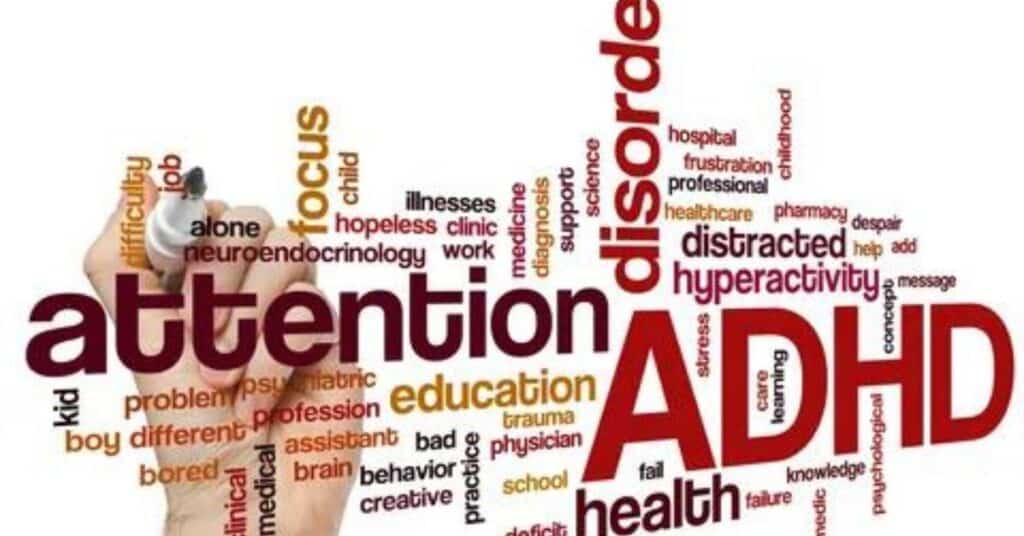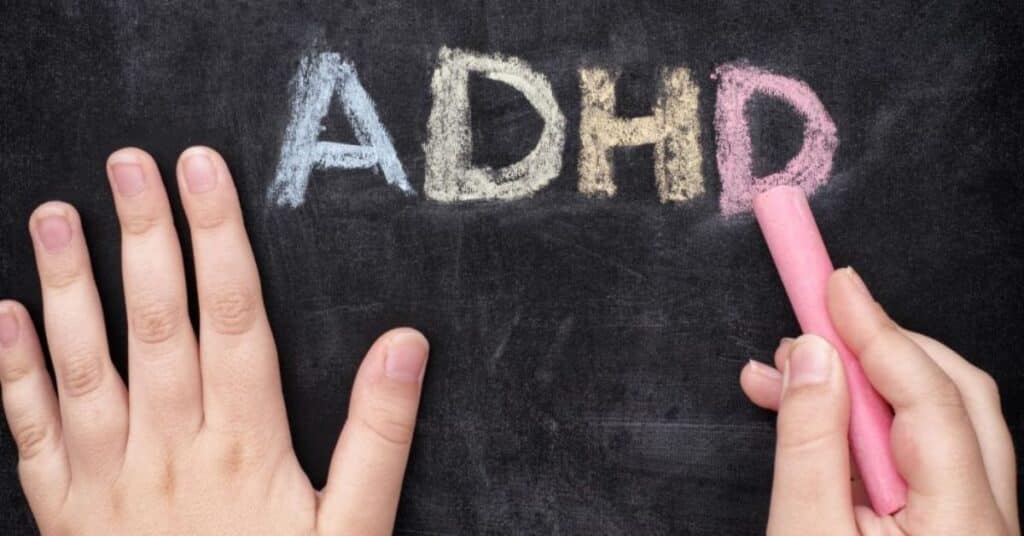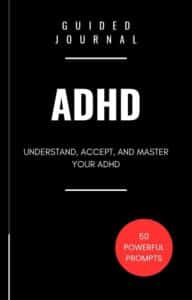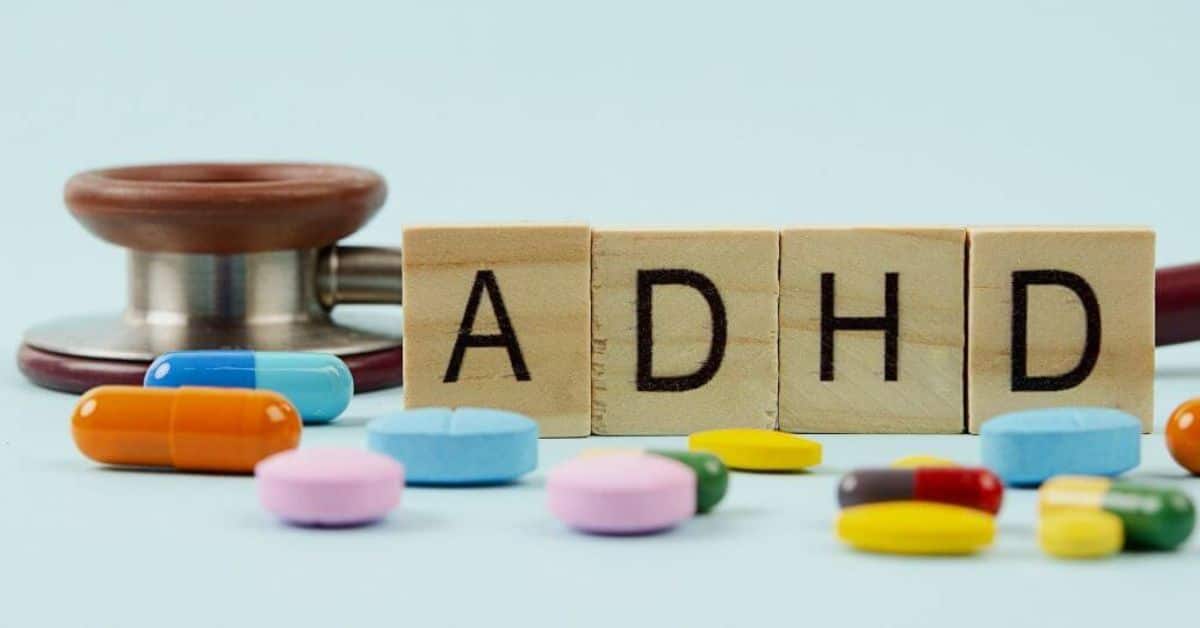In the swirling whirlwind of thoughts and distractions that often characterizes ADHD (Attention Deficit Hyperactivity Disorder), finding a moment of clarity can feel like searching for a needle in a haystack. Yet, within this whirlwind lies a unique power—a vibrant creativity and a perspective on the world that’s as dynamic as it is insightful. “50 Journal Prompts for Unlocking the ADHD Mind” is crafted with the understanding that beneath the surface of the challenges faced by those with ADHD, there is a wealth of potential waiting to be explored.
This collection of journal prompts is designed not just as a tool for introspection but as a beacon of empowerment for individuals navigating the complexities of ADHD. With a blend of simplicity and depth, each prompt guides you through the layers of your experiences, emotions, and aspirations, encouraging a dialogue with yourself that’s both healing and transformative. Whether you’re seeking to understand the intricacies of your mind, forge a stronger connection with your inner self, or simply find a moment of peace in the chaos, these prompts offer a pathway to self-discovery and personal growth.
Embarking on this journaling journey, you’ll explore the multifaceted nature of ADHD—from the challenges of time management and the quest for focus to the joys of hyperfocus and the bursts of creativity that come unbidden. This is an invitation to reflect on your journey, recognize your strengths, and confront your struggles with openness and compassion. So, grab your journal, find a comfortable spot, and prepare to dive deep into the essence of your ADHD mind. Let these prompts be your guide as you navigate the vibrant landscape of your thoughts and emotions, uncovering insights that illuminate your path to self-empowerment and fulfillment.
Understanding ADHD: Attention Deficit Hyperactivity Disorder
What Is ADHD?
Attention Deficit Hyperactivity Disorder (ADHD) is a neurodevelopmental condition that affects millions of children and often continues into adulthood. It is characterized by patterns of inattention, hyperactivity, and impulsivity that interfere with daily functioning or development. While everyone might experience these behaviors at some point, for individuals with ADHD, these behaviors are more severe, frequent, and interfere with their quality of life.
The Three Core Symptoms
1. Inattention
Inattention in ADHD is not just about difficulty paying attention; it’s about struggling to consistently focus on tasks, especially if they are routine or not particularly engaging. People with ADHD might have trouble following detailed instructions, often lose things, and find it hard to organize tasks and activities.
Example: Imagine you’re trying to read a book that you find somewhat interesting. However, no matter how hard you try, you find your mind wandering off to different thoughts, or you might get up multiple times, finding it impossible to stay seated and concentrate on the book.
2. Hyperactivity
Hyperactivity in ADHD is more than just having lots of energy. It’s feeling driven by a motor, often moving, fidgeting, or talking excessively, even when it’s not appropriate. This can make sitting still for long periods, like during class or at work, challenging.
Example: Picture yourself sitting through a long movie. While your friends are engrossed in the film, you feel an overwhelming urge to move around, tap your feet, or whisper comments to your friends, despite trying your best to stay still and quiet.
3. Impulsivity
Impulsivity involves making hasty actions that occur at the moment without first thinking about them and that may have high potential for harm or result in undesired outcomes. It can manifest as interrupting conversations, impatience with waiting turns, and making rash decisions.
Example: Imagine you’re in a conversation, and an idea pops into your head. Without waiting for your turn to speak, you blurt out your thoughts, interrupting the person speaking. Later, you might realize this action was inappropriate but at the moment, the impulse was too strong to resist.
Causes and Risk Factors
The exact cause of ADHD is not known, but research suggests that genetics play a significant role. Other factors might include brain structure and function, exposure to environmental risks during pregnancy or at a young age, and alcohol and tobacco use during pregnancy.
Diagnosis and Treatment
Diagnosing ADHD involves a comprehensive evaluation by a healthcare provider, including input from parents, teachers, and others. There is no single test for ADHD; instead, it’s diagnosed through a combination of interviews, observations, and sometimes, psychological testing.
Treatment often includes behavior therapy, medication, or a combination of both. Strategies for managing symptoms also involve education about the disorder, skill training, and psychological counseling.
Living with ADHD
Living with ADHD can present challenges, but with the right strategies and support, individuals can lead successful and fulfilling lives. Strategies might include creating routines, breaking tasks into manageable steps, using reminders for important tasks, and adopting healthy lifestyle habits like regular exercise and a balanced diet.
ADHD is more than just having trouble paying attention or staying still. It’s a complex neurodevelopmental disorder with significant impacts on daily life. However, with understanding, support, and appropriate strategies, individuals with ADHD can thrive. By recognizing the signs and seeking proper evaluation and treatment, those with ADHD and their loved ones can navigate the challenges and embrace the strengths of this unique condition.

Transform Your ADHD Journey Through Journaling
Introduction to Journaling
Have you ever felt overwhelmed by the whirlwind of thoughts and emotions, finding it hard to focus or stay on task due to ADHD? Journaling, a simple yet powerful tool, might be what you need. Journaling involves writing down your thoughts, feelings, experiences, and reflections regularly. It’s a personal space for self-expression, exploration, and understanding, offering a unique way to navigate the complexities of Attention Deficit Hyperactivity Disorder (ADHD).
The Power of Writing It Down
For individuals with ADHD, the act of writing can transform thoughts from fleeting distractions into tangible concepts that can be analyzed, understood, and acted upon. Journaling can help you:
Gain Clarity and Focus
ADHD can often make your mind feel cluttered with endless thoughts. Writing helps in organizing these thoughts, providing clarity and focus. By putting your thoughts on paper, you’re able to see them from a new perspective, making it easier to prioritize and tackle one thing at a time.
Enhance Self-Awareness
Regular journaling encourages you to reflect on your day-to-day experiences, helping you to identify patterns in your behavior and triggers for certain emotions or actions. This increased self-awareness can be a powerful guide in managing ADHD symptoms more effectively.
Manage Emotions
ADHD is often accompanied by intense emotions that can be overwhelming. Journaling serves as a safe outlet for expressing these emotions, reducing stress, and helping to process feelings in a healthy way. Writing about your experiences can offer emotional release and a sense of calm.
Improve Memory and Attention
For those with ADHD, memory lapses and inattentiveness can be common challenges. Keeping a journal helps in reinforcing memory by creating a written record of your thoughts and experiences. It can also aid in improving attention to detail as you become more mindful of your daily activities and thoughts.
Set Goals and Track Progress
Journaling can be incredibly effective in setting goals, especially for individuals with ADHD who might struggle with long-term planning. Writing down your goals makes them more concrete, and keeping a journal allows you to track your progress, celebrate successes, and reflect on areas needing improvement.
How to Start Journaling for ADHD
Choose Your Medium
Whether you prefer a classic notebook, a digital app, or a voice memo, choose a medium that feels comfortable and accessible for you. The key is consistency, so pick a format that you can stick with.
Set Aside Time
Designate a specific time each day for journaling. It doesn’t have to be long; even a few minutes can be beneficial. Try to make it a relaxing routine, perhaps in the morning to plan your day or at night to reflect on what happened.
Keep It Simple
Your journal doesn’t need to be a literary masterpiece. The goal is to express your thoughts and feelings freely. Start with what’s on your mind or how you’re feeling at the moment. There’s no right or wrong way to journal.
Use Prompts
If you’re unsure where to start, journal prompts can be a helpful guide. They can be specific to ADHD challenges, such as “What tasks did I find difficult to focus on today, and why?” or more open-ended, like “What am I grateful for today?”
Reflect and Act
Regularly look back on your entries to identify patterns or recurring themes. This reflection can provide insights into managing your ADHD more effectively. Use your journal as a tool for action, setting small, achievable goals based on your reflections.
Journaling is more than just writing; it’s a journey of self-discovery and personal growth. For individuals with ADHD, it offers a unique set of benefits that can lead to improved focus, emotional regulation, and self-awareness. By incorporating journaling into your routine, you create a personal space to explore the nuances of your ADHD, harness your strengths, and navigate challenges with confidence. Start your journaling journey today and transform the way you live with ADHD, one page at a time.

Journal Writing Prompts for ADHD
- Today’s Focus Challenges: Reflect on the tasks that were particularly challenging to focus on today. What do you think contributed to these difficulties?
- Success Stories: Identify a moment today when you felt successful in managing your ADHD. What was happening, and what strategies did you use?
- Emotional Insights: How did your ADHD affect your emotions today? Were there moments of frustration, joy, or something else entirely?
- Hyperfocus Havens: Write about a time this week when you experienced hyperfocus. What were you doing, and how did it feel?
- Navigating Social Waters: Reflect on a social interaction today. How did ADHD play a role, and what would you like to improve?
- Organizational Tools: What organizational tools or strategies did you use today? How effective were they, and why?
- Creative Energies: How did ADHD influence your creativity today? Describe any creative endeavors or ideas.
- Time Perception: Reflect on your perception of time today. How did it impact your activities or productivity?
- Learning from Mistakes: Think about a mistake you made this week. What did you learn from it, and how can you apply this lesson in the future?
- Mindful Moments: Did you have any moments of mindfulness today? Describe the experience and its impact on your ADHD symptoms.
- Setting Boundaries: How did you set or respect boundaries today, either with others or yourself? How did it feel?
- Impulse Reflections: Reflect on an impulsive decision you made recently. What led to it, and what was the outcome?
- Seeking Stillness: When today did you seek stillness or calm, and how did you achieve it? Was it effective in managing your ADHD?
- Exploring Empathy: How did ADHD affect your empathy or understanding of others today? Share an example.
- Gratitude Glimpses: What are three things you’re grateful for about your ADHD? How have they positively impacted your life?
- Social Support: Who supported you today, and how did it make a difference in managing your ADHD?
- Cherished Challenges: What challenge related to ADHD are you currently facing, and how can it be seen as an opportunity for growth?
- Daily Distractions: Identify your top three distractions today. Why do you think they were particularly distracting?
- Self-Care Strategies: What self-care practices did you engage in today? How did they affect your ADHD symptoms?
- Rewarding Routines: Describe a routine that’s rewarding for you. How does it help manage your ADHD symptoms?
- Unwinding Methods: How do you unwind or relax after a stressful day, especially considering your ADHD?
- Patience with Progress: Reflect on your journey with ADHD. Where have you seen the most progress, and what has required the most patience?
- Energy Evaluation: How do you feel energy-wise today, and how did ADHD influence your energy levels?
- Conflict and Resolution: Think about a recent conflict that was influenced by your ADHD. How was it resolved?
- Bridging Communication: How does ADHD affect your communication? Provide an example and explore alternative approaches.
- Memory Moments: Reflect on a memory related to ADHD that stands out. Why is it significant, and what does it teach you?
- Goal Setting: What goals do you have related to managing your ADHD? How do you plan to achieve them?
- Strengths Spotlight: What strengths do you have because of your ADHD? How did they manifest today?
- Coping with Criticism: How do you handle criticism related to ADHD? Share a recent experience and your reflections.
- Technology and ADHD: How does technology impact your ADHD, both positively and negatively?
- Mind-Body Connection: Reflect on the connection between your physical health and ADHD. What have you noticed?
- Overcoming Overwhelm: Describe a strategy that helps you overcome feelings of overwhelm. How did you discover it?
- Past Perspectives: How has your understanding of ADHD changed over time? Reflect on your journey.
- Future Foresight: Where do you see yourself in the future with your ADHD? What hopes or concerns do you have?
- Embracing Change: What changes have you made because of your ADHD? How have these changes impacted your life?
- Facing Fears: What fears do you have about ADHD, and how do you confront them?
- Mindfulness and Meditation: How do mindfulness or meditation practices influence your ADHD symptoms? Share your experiences.
- Adapting to Change: Reflect on a time when you had to adapt to a sudden change. How did your ADHD play a role, and what did you learn?
- Resilience and Recovery: Describe a situation where you had to bounce back from a setback. How did ADHD affect this process?
- Navigating Negativity: How do you navigate negative thoughts related to ADHD? Share a technique that helps you maintain a positive outlook.
- Leisure and ADHD: How does ADHD affect your leisure activities or hobbies? Discuss how you manage to enjoy your hobbies despite ADHD.
- Connection and Isolation: How does ADHD influence your feelings of connection or isolation with others? Provide an example from your life.
- Sleep and Symptoms: Reflect on the relationship between your sleep patterns and ADHD symptoms. How do you manage sleep issues?
- Learning from Others: Share a piece of advice you’ve received from someone else with ADHD that has helped you.
- Personal Growth: What is the most significant way ADHD has contributed to your personal growth? Describe the impact on your life.
- Managing Meltdowns: How do you manage emotional meltdowns or overwhelming feelings related to ADHD? Share your strategies.
- ADHD and Identity: How does ADHD contribute to your sense of identity? Discuss how you embrace it as part of who you are.
- Exploring Executive Function: How do executive function challenges associated with ADHD manifest in your daily life? Share specific examples.
- Think about the relationship between ADHD and procrastination. Share a strategy that has helped you overcome procrastination.
- Setting Intentions: What intentions do you want to set for yourself regarding your ADHD management? How will you implement them?
Download Printable Journal Prompts (PDF) >>
Guided Journal for ADHD
50 Writing Prompts to Understand, Accept, and Master Your ADHD

Designed specifically for individuals navigating the complexities of ADHD, this guided journal acts as your compass, guiding you through self-reflection towards personal growth and effective management strategies. Each page is a step towards understanding your unique ADHD patterns, transforming challenges into strengths, and cultivating a life of focus and grace.
Key Benefits:
- Tailored Prompts: From “Today’s Focus Challenges” to “Navigating Social Waters,” each prompt encourages deep reflection on daily experiences, offering insights into managing distractions, emotions, and relationships more effectively.
- Strategic Reflection: Learn from your “Success Stories” and “Emotional Insights,” identifying what works and where there’s room for improvement. This journal is your tool for personal strategy development, turning insights into action.
- Creative Exploration: Unleash your “Creative Energies” and discover new ways to channel your hyperfocus into productive and fulfilling endeavors that resonate with your passions and goals.
- Time Mastery: Reflect on “Time Perception” and develop strategies to manage your day with more precision and less stress, turning time from foe to friend.
- Self-Care and Support: From “Self-Care Strategies” to “Social Support,” learn to prioritize your well-being and leverage your support network for a balanced, fulfilling life.
- Empowerment Through Reflection: “Strengths Spotlight” and “Personal Growth” prompts encourage you to recognize and celebrate your unique abilities and contributions, fostering a positive self-image and confidence.
The “Guided Journal for ADHD” is more than a journal; it’s a journey towards self-discovery, acceptance, and empowerment. By dedicating time to these reflective prompts, you’ll develop a deeper understanding of your ADHD, harness your strengths, and navigate life’s challenges with newfound focus and grace. Your ADHD journey is unique, and this journal is your personalized map to mastering it. Embrace your journey today, and discover the skilled navigator within you, ready to steer through the ADHD storm towards a horizon of potential and peace.
As we reach the end of this article, it’s my hope that these prompts have served as more than just questions on a page. Ideally, they’ve been a journey—a journey into the heart of your experiences with ADHD, a journey of reflection, learning, and growth. Through this process of introspective exploration, perhaps you’ve encountered aspects of yourself previously hidden in the shadow of daily struggles or discovered new strengths that shine brightly even in challenging moments.
Journaling, with its quiet power to transform thoughts into words, offers a unique mirror reflecting our deepest selves. For those navigating the waters of ADHD, this mirror can reveal the extraordinary resilience, creativity, and adaptability that characterizes your journey. It’s in these moments of self-reflection that we find clarity, understanding, and the courage to embrace our true selves, ADHD and all.
As you continue on your path, remember that self-discovery is an ongoing journey, not a destination. Each day brings new challenges and opportunities for growth. Keep your journal close, for it is not only a repository of thoughts and dreams but a testament to your journey of self-discovery and empowerment.
And so, I leave you with one final question to ponder: How will you harness the insights gained from these journal prompts to shape your journey forward, embracing the vibrant tapestry of experiences that ADHD adds to your life?

